Custom ERP System for Streamlining Industry Operations
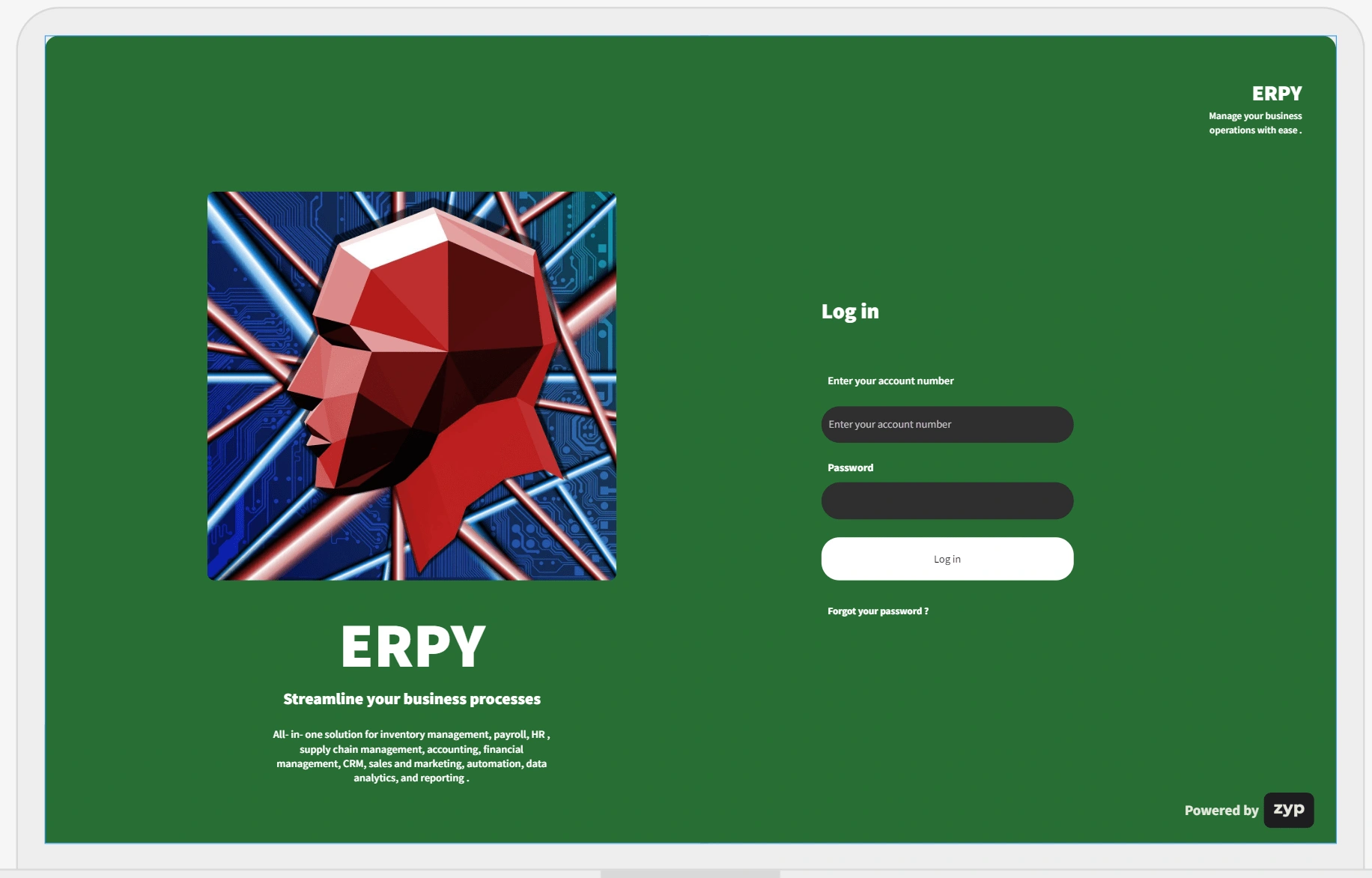
Introduction
The Custom ERP System is a sophisticated software solution designed to revolutionize and optimize various business operations. Developed with a focus on streamlining essential processes, this system offers a diverse array of modules, each equipped with unique functionalities and features to enhance operational efficiency and automation.
ERP Modules:
1. Inventory Management:
Real-time Tracking: Gain immediate visibility into stock levels for informed decision making.
Automated Procurement: Optimize stock replenishment through predefined triggers and demand forecasting.
Multi-location Support: Seamlessly manage inventory across multiple locations, improving supply chain efficiency.
2. Payroll and HR:
Centralized Employee Database: Enhance data accessibility and streamline HR management with a centralized employee information hub.
Recruitment Automation: Streamline recruitment processes from job posting to candidate selection.
Performance Evaluation: Automate performance evaluation processes to provide comprehensive insights into employee performance.
Payroll Management: A comprehensive module automating payroll calculations, tax deductions, and ensuring compliance with regulatory standards.
3. Supply Chain Management:
End-to-End Visibility: Provide complete visibility into the supply chain, optimizing procurement, production, and distribution processes.
Supplier Relationship Management: Strengthen collaboration with suppliers through effective communication and streamlined interactions.
4. Accounting and Financial Management:
Automated Transactions: Reduce manual errors by automating financial transactions.
Real-time Reporting: Generate real-time financial reports for informed decision-making.
Compliance Assurance: Ensure compliance with industry standards and regulations through built-in checks and validations.
5. CRM (Customer Relationship Management):
360-Degree Customer View: Consolidate customer data for a comprehensive understanding, fostering improved customer relationships.
Sales Automation: Streamline sales processes, from lead generation to closing deals, improving overall sales efficiency.
6. Sales and Marketing:
Sales Order Processing: Streamline sales order processing, reducing lead times and improving order fulfillment.
Marketing Campaign Management: Facilitate effective marketing campaign planning, execution, and analysis.
7. Automation:
Workflow Automation: Enhance operational efficiency by automating workflows.
Task and Process Automation: Improve overall productivity by automating repetitive tasks and processes.
8. Data Analytics and Reporting:
Data Visualization: Incorporate data visualization tools for clear insights into business performance.
Predictive Analytics: Implement predictive analytics to anticipate trends and make data-driven decisions.
Screenshots
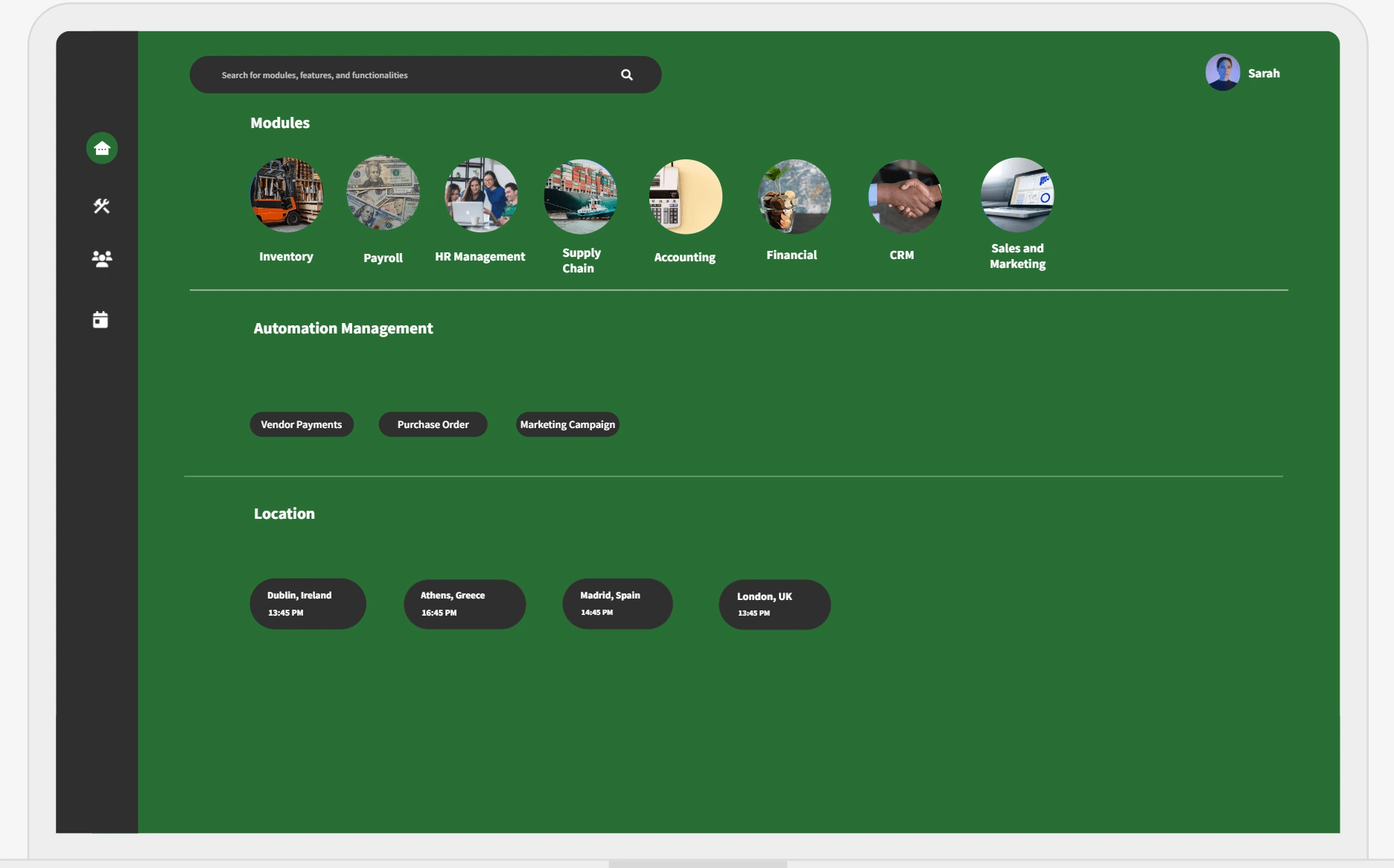
Main Menu
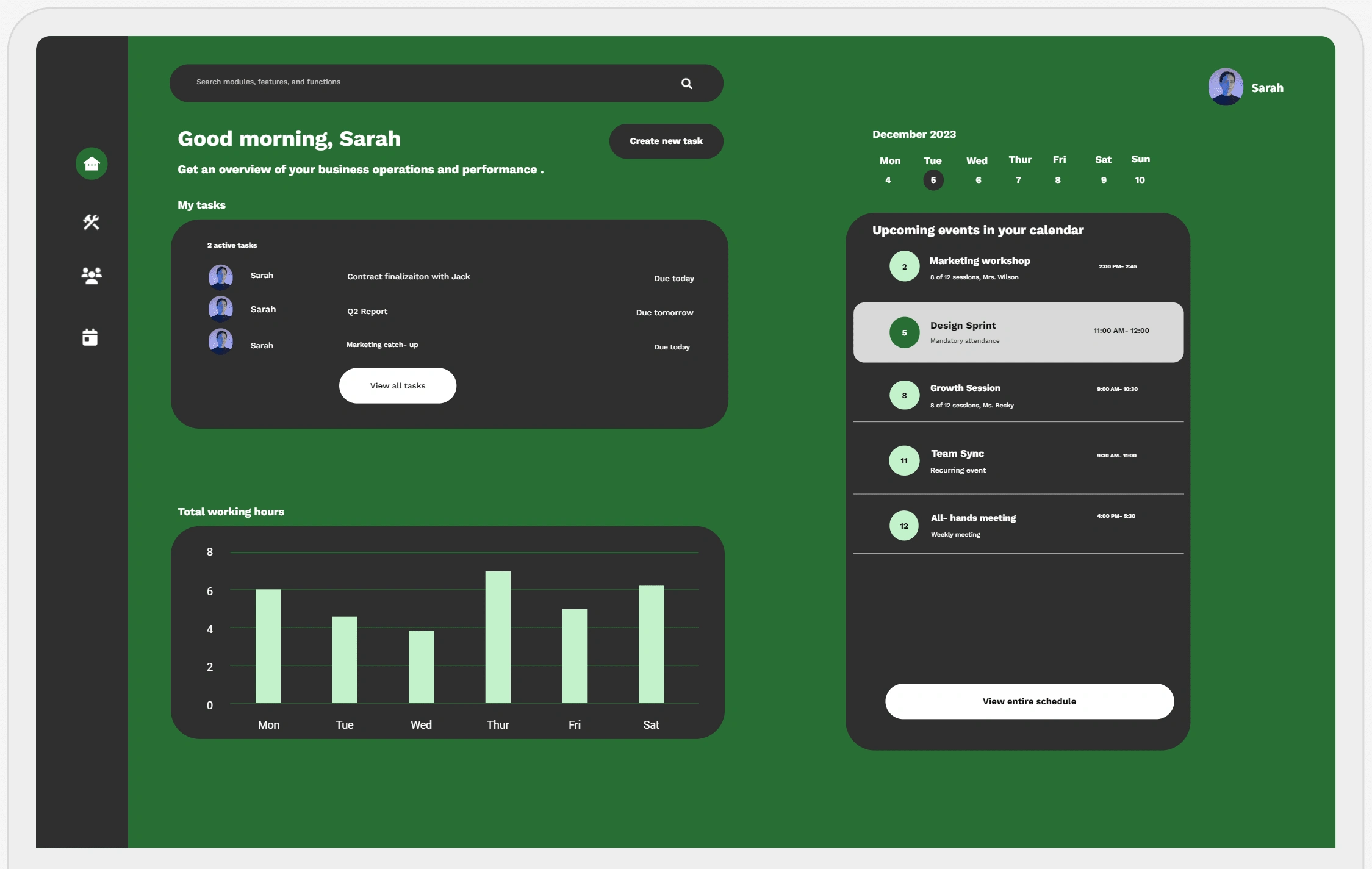
User Dashboard
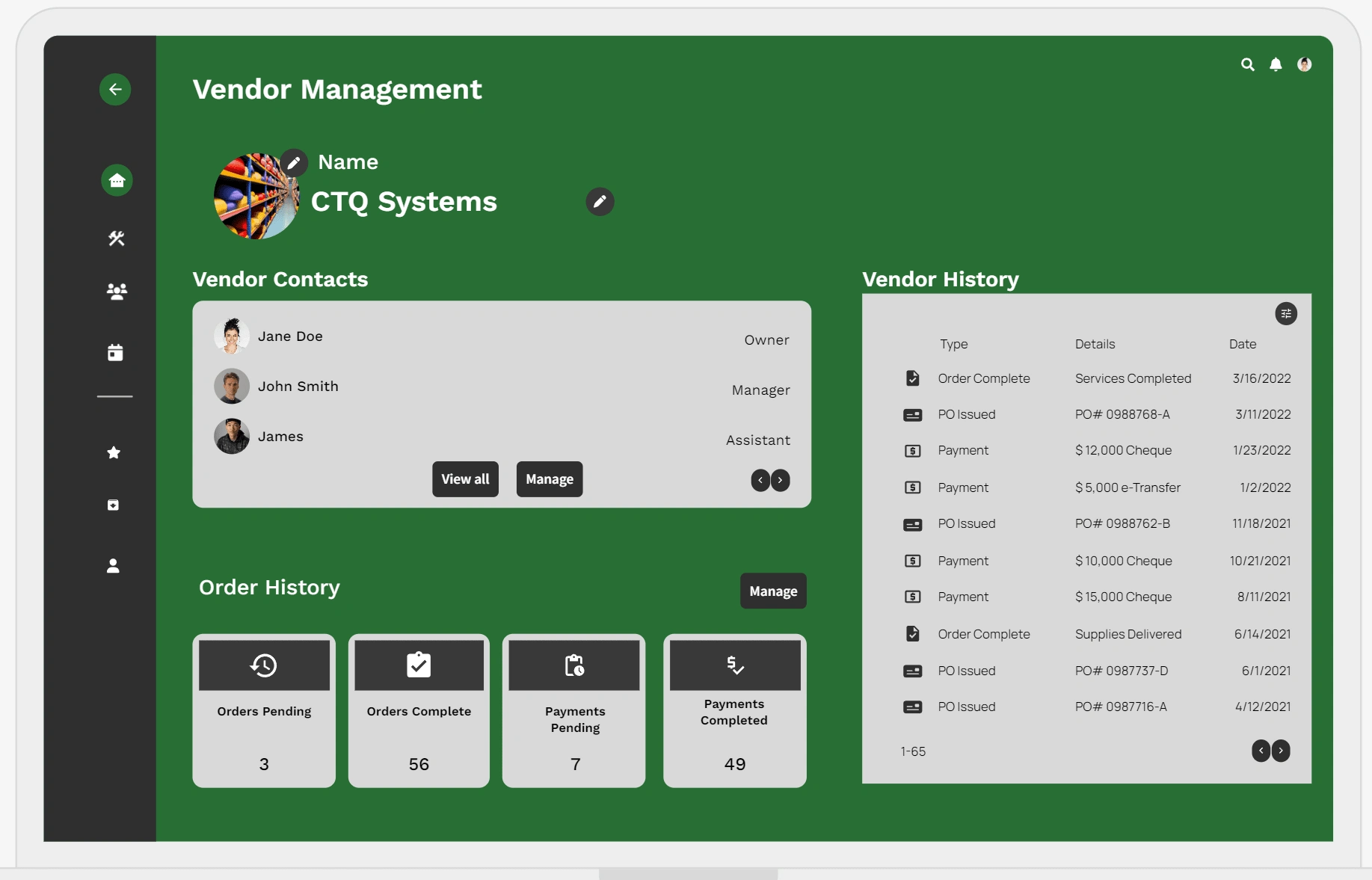
Vendor Management
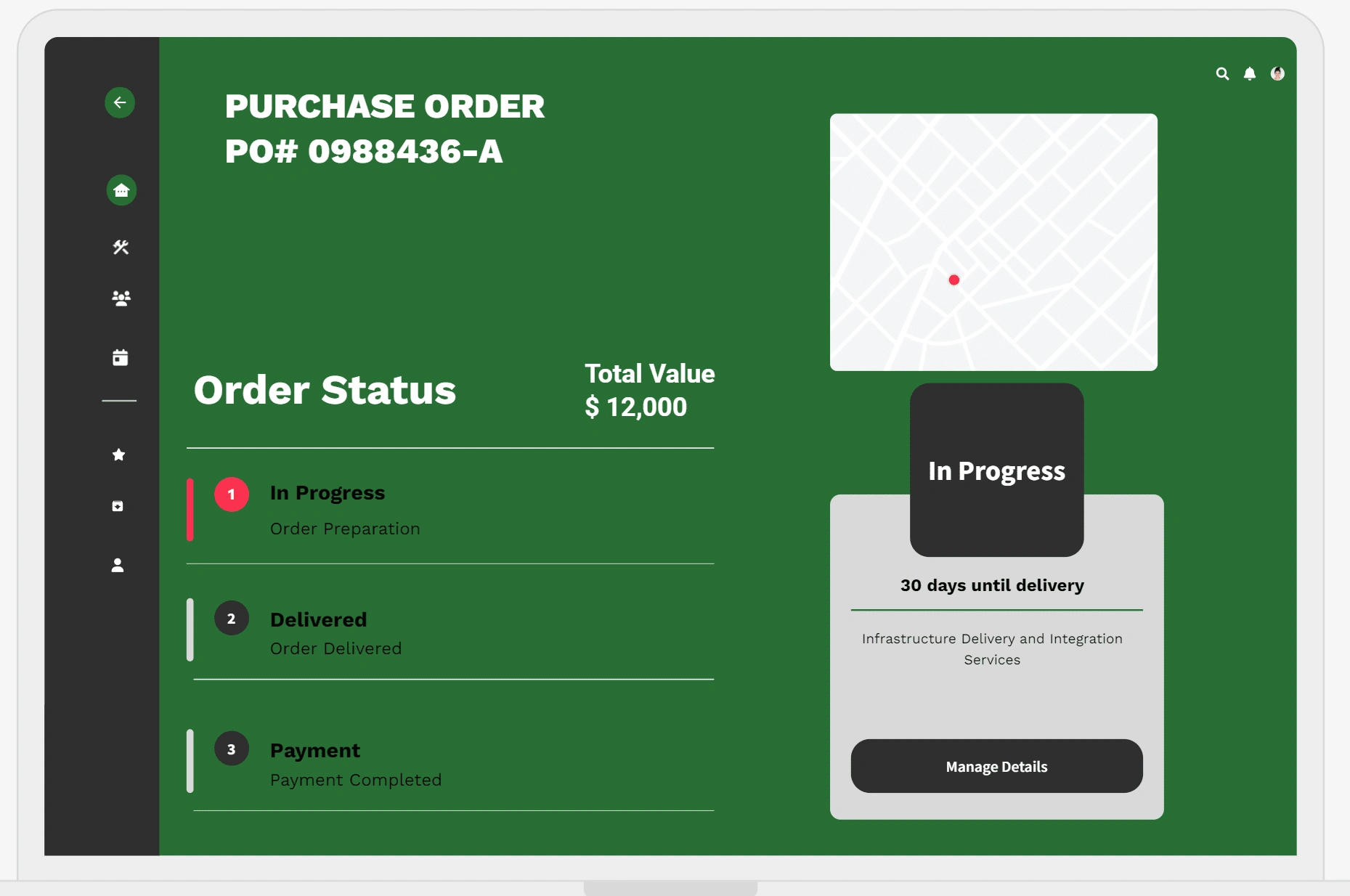
PO Information
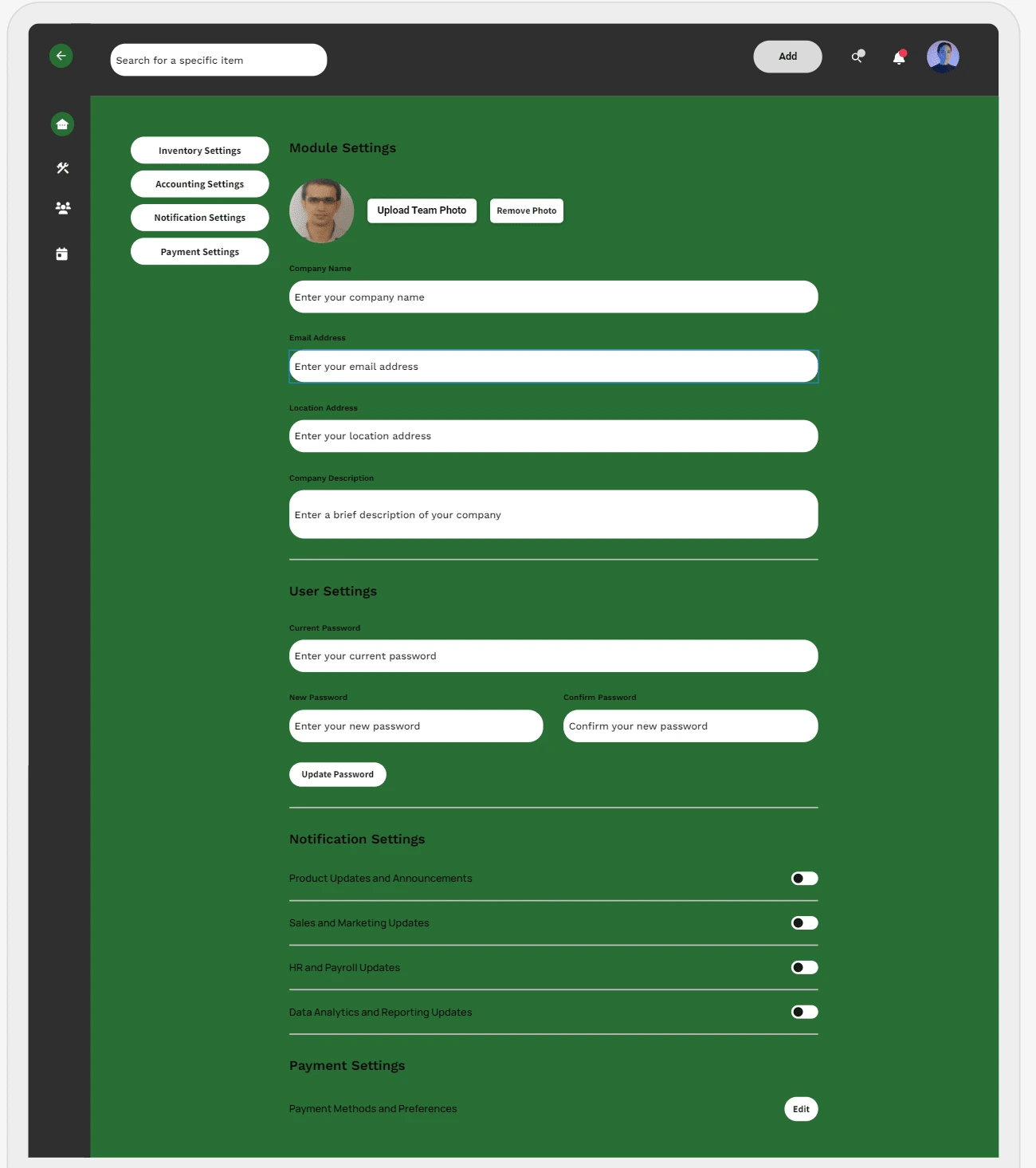
User settings
Conclusion:
The comprehensive suite of ERP modules addresses key business functions, providing organizations with a powerful tool to streamline processes, enhance collaboration, and make data-driven decisions. Each module is designed to optimize specific aspects of industry operations, contributing to the overall success and efficiency of the organization. The Custom ERP System is positioned as a valuable asset for businesses seeking to achieve operational excellence in today's competitive landscape.
Like this project
Posted Jan 24, 2024
Principal Software Architect for Custom ERP System Led end-to-end development, revolutionizing operations with focus on inventory, HR, and accounting automation
Likes
0
Views
6








